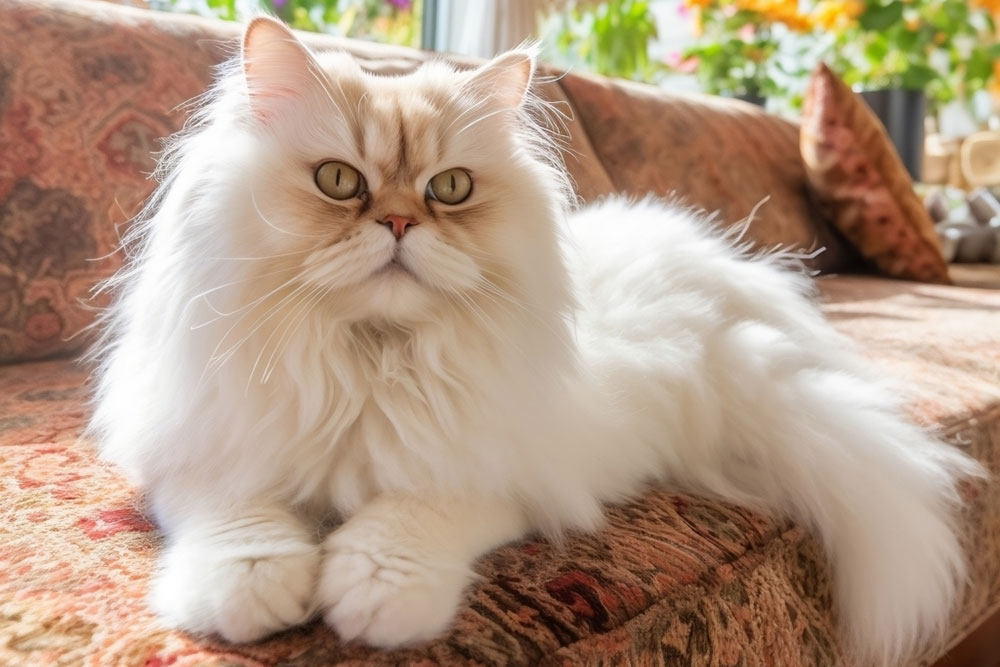As our feline companions gracefully tread into their golden years, they may encounter the intricate challenges of Chronic Kidney Disease (CKD). The good news is that, with our support and an understanding of chronic kidney disease in cats, we can enhance their quality of life during their senior years.
Table of Contents
The Feline Renal System: A Symphony of Life
The kidneys, those unassuming powerhouses tucked away inside our cats, are responsible for a multitude of critical functions. They are the biological filtration plants, purifying blood, regulating electrolytes and hydration, eliminating toxins, and maintaining blood pressure. In essence, the feline renal system conducts an intricate symphony, orchestrating a delicate equilibrium within the feline body.
Prevalence of Chronic Kidney Disease in Cats
CKD is a common concern, especially among our senior feline friends. While precise statistics may vary, it’s estimated that over 30% of cats aged 15 or older grapple with some stage of CKD. Genetics, age, and lifestyle all play a role in kidney disease. While we cannot rewrite a cat’s genetic code, we can proactively adopt measures to provide support and early detection, significantly enhancing our cat’s quality of life.
Diagnostics: Shedding Light on Kidney Health
Detecting CKD in its early stages is essential for effective management and a happy, extended life for our feline companions. The tricky part is that many cats don’t exhibit symptoms during the initial phases of kidney disease. However, in the later stages, symptoms such as dehydration, weight loss, poor body condition, increased thirst, and frequent urination may manifest. Veterinarians employ an array of diagnostic tools, including blood tests, urinalysis, ultrasound, and blood pressure readings, to assess the state of the renal system. These diagnostic markers not only detect chronic kidney disease in cats, but also guide treatment strategies.
Treatment Strategies: A Multifaceted Approach
1. Diet: Dietary management is central to CKD care. Opt for moisture-rich diets, such as raw or canned foods, and steer clear of kibble. There are also specialized, prescription renal diets, including prescription raw diets, designed to lessen the workload on the kidneys
2. Hydration: Adequate hydration is a cornerstone of CKD management. Cats tend to be finicky about water consumption, so providing multiple water sources and pet fountains can encourage your kitty to drink more. Some cat guardians will also opt to administer subcutaneous fluids at home as advised by their veterinarian.
3. Supplements:
- Fish Oil: Omega-3 fatty acids, like RxVitamins UltraEFA, can reduce inflammation and promote overall health.
- Herbs: Supportive botanical extracts like milk thistle, asparagus root, and green tea extract, found in RxRenal Feline Beadlets, can bolster kidney function.
- Probiotics: RxBiotic and ThorneVet Probiotic Support Formula are potent allies for gut health, aiding digestion, and reducing waste products that can strain the kidneys. Learn more about the role of probiotics in supporting kidney disease here.
4. Chinese Medicine:
- Acupuncture: Traditional Chinese acupuncture can manage CKD symptoms, alleviating pain, inflammation, and discomfort.
- Chinese Herbs: Tailored herbal remedies support kidney function and overall well-being.
To find a veterinarian skilled in Traditional Chinese Veterinary medicine, you can explore IVAS or The Chi Institute.
While Chronic Kidney Disease in cats is a common ailment, particularly in seniors, early detection and a comprehensive approach to treatment, guided by a dedicated veterinary team, can help your feline friend enjoy their golden years in comfort and happiness. Together, we can navigate CKD and provide a thriving senior life for our cherished companions. If you want to take a more in-depth look at chronic kidney disease in cats (CKD), be sure to check out Dr. Angie’s course, A Holistic Approach to Your Cat’s Kidney Disease.


